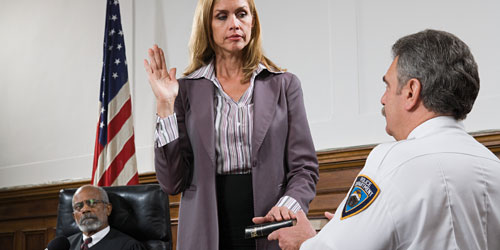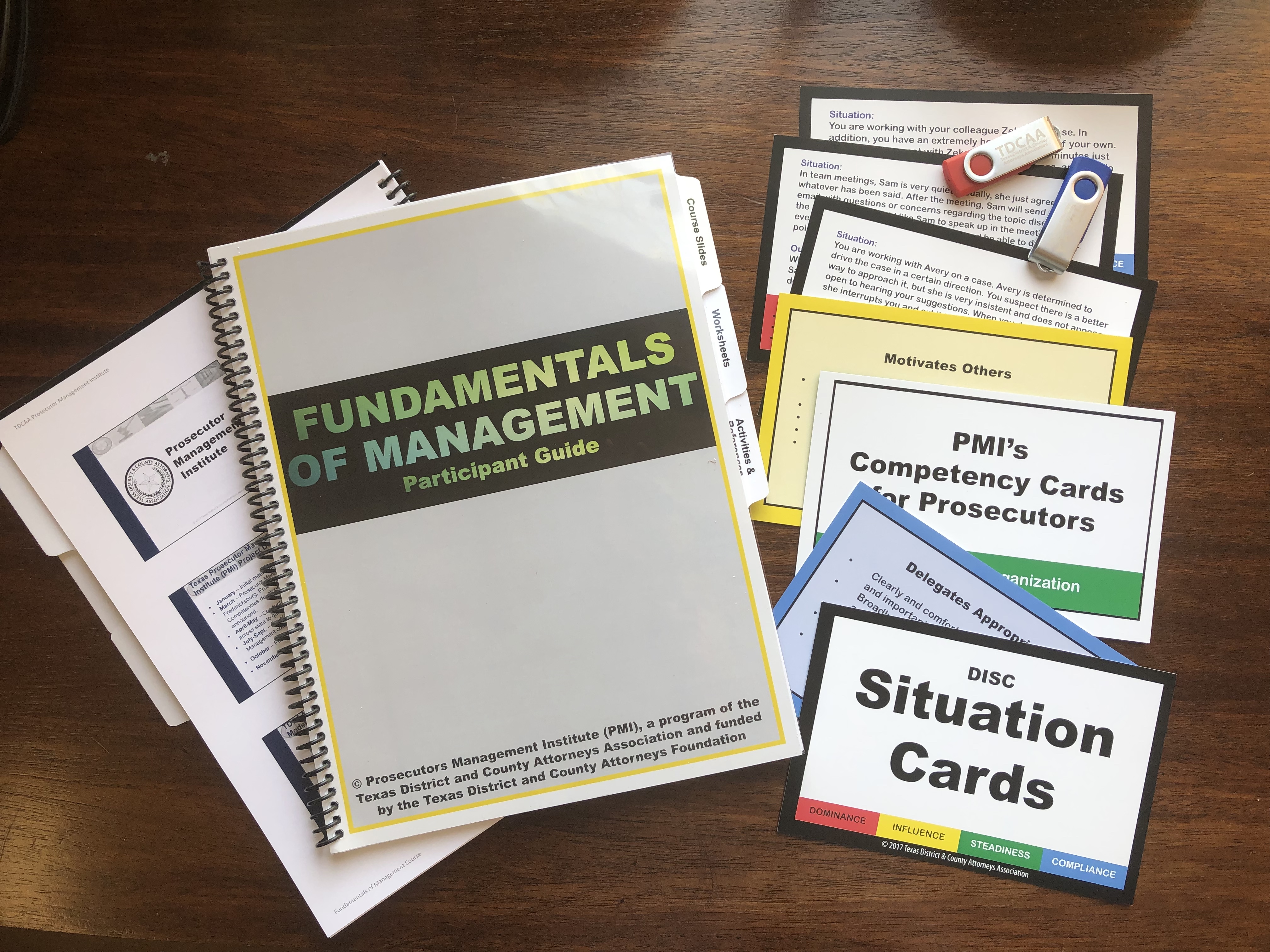Texas Courts of Appeals
Ramjattansingh v. State
No. 01-15-01089-CR 8/10/17
Issue:
Is a breath test showing a BAC over .15 two hours after the defendant stopped driving sufficient to prove that the defendant’s BAC was over .15 “at or near the time of the offense?”
Holding:
No. The results of a breath test taken two hours after arrest is not sufficient to determine the BAC at the time of driving without retrograde extrapolation. Penal Code §49.04(d) requires the State only to prove a BAC over .15 at the time of testing, not at the time of the offense. However, if the State invites error by including “at or near the time of the offense” in the information and jury charge, it will be held to the higher burden of proof. Read opinion.
Commentary:
This case is governed by its unique facts, but it is troubling because one could certainly find cases in which a defendant was administered a breath or blood test in a similar time frame. Nevertheless, the court of appeals held, “Given the impact that the passage of time has on a defendant’s alcohol concentration, a two-hour interval is not close enough in time to an alleged instance of drunk driving to qualify as near the time of the offense, at least not on this record.” That is a little troubling and surprising. Perhaps this case will be restricted to its unique facts, but not all of this opinion rings true.
Hernandez v. State
No. 01-16-00755-CR 8/10/17
Issue:
May a first conviction under Penal Code §22.01 be labelled as “assault-family violence” although not subject to enhancement?
Holding:
Yes. The terms “assault-family member” or “assault-family violence” are descriptive only. There is no requirement that only the title of the offense as identified in the Penal Code be used in the judgment. As long as the description of the offense is accurate, “pedagogical precision” is not required. Read opinion.
Concurrence (Keyes, J.):
Designating a first assault conviction as “assault-family violence” is not only allowed but also serves an important function in the law. This designation gives the defendant notice of the full nature of the crime and the potential consequences. It also serves as proof of a conviction involving family violence to enhance later charges or in child custody proceedings. The best practice to meet the requirements of Code of Criminal Procedure Art. 42.01 is to give an accurate description of the offense. Stating that the defendant was convicted of assault of a family member fully complies with this practice. Read opinion.
Commentary:
There is nothing wrong with the lead opinion, but in her concurring opinion, Justice Keyes actually presents the stronger argument. It is not at all unusual to designate the misdemeanor offense as assault-family violence. And, as noted by Justice Keyes in her concurrence, the trial judge is actually required to make an affirmative finding of family violence by Article 42.013. As a practical matter, it is helpful to future prosecutors and judges to so designate the misdemeanor offenses because—as we all know—domestic violence offenders are often very likely to reoffend. Their punishment will need to be enhanced with the next domestic violence offense, and this designation in the misdemeanor judgment is the easiest way to make that happen. This is a very helpful domestic violence decision, and there is a thorough discussion regarding the admissibility of the contents of a 911 call over a confrontation objection.
Foster v. State
No. 05-15-01539-CR 8/11/17
Issue:
Does a missing reporter’s record of the punishment phase of trial entitle the defendant to a new punishment hearing?
Holding:
No. Under Routier v. State, 112 S.W.3d 554 (Tex. Crim. App. 2003), to be entitled to a new trial due to a missing record the defendant must show: 1) he timely requested the reporter’s record, 2) a significant portion of the record has been lost or destroyed through no fault of his own, 3) the missing portion of the record is necessary to his appeal, and 4) the parties cannot agree on the record. A mere assertion that the missing record could potentially assist on appeal is not sufficient to show that the record is necessary for resolution of the appeal. Routier reversed Kirtley v. State, 56 S.W.3d 48 (Tex. Crim. App. 2001), in which a bare assertion that the missing record might show ineffective assistance of counsel was sufficient to grant the defendant a new hearing. Read opinion.
Concurrence (Schenck, J.):
The missing record of the sentencing phase of trial does not support presumed harm or reversal under Routier. The decision of punishment is a normative, discretionary function that is different from the guilt-innocence determination. There is a presumption that trial counsel was competent and the presiding judge was impartial. The defendant is required to do more than merely suggest the missing portion of the record might have revealed reversible error to overcome the presumption of regularity in the punishment proceedings. Read opinion.
Dissent (Brown, J.):
The defendant is entitled to a new punishment hearing because there is no record of the punishment phase of the trial, and the record is necessary to resolve his appeal. The absence of any record constitutes a fundamentally unfair proceeding. Routier is distinguishable from Kirtley because Routier had a transcript of the missing record. The court should follow the decision in Kirtley and grant a new punishment hearing because, like Kirtley, the defendant has no record at all of the punishment phase of his trial. Read opinion.
Commentary:
In this case, punishment was determined by the trial judge after a 30-minute proceeding. The same judge who presided over that proceeding also presided over the hearing regarding the lost record. This decision appears to be consistent with Nava v. State, the most recent decision from the Court of Criminal Appeals regarding a portion of lost record. Nevertheless, because there is an obvious division of opinion among the court of appeals justices, expect the Court of Criminal Appeals to review this decision.
French v. State
No. 11-14-00284-CR 8/10/17
Issue:
Is a jury unanimity instruction required when the charge includes disjunctive language of two distinct criminal acts within aggravated sexual assault of a child?
Holding:
Yes. A defendant may face prosecution for aggravated sexual assault of a child for penetration of separate orifices, even during the same transaction. Each section of Penal Code §22.021 constitutes a separate criminal act. If the charge contains disjunctive language (i.e. “or”) alleging more than one criminal act, the jury must be instructed that it cannot return a guilty verdict unless it unanimously agrees that the defendant committed a single, specific criminal act. Read opinion.
Commentary:
Any time that prosecutors try a child molestation case, think seriously about including a unanimity instruction in the jury charge. And then think about it again. Such instructions are often necessary when the State is prosecuting the defendant for something other than continuous sexual abuse of a child. That said, the evidence in this case was not particularly strong regarding an alternate means of molesting the victim—penetration of the victim’s sexual organ. The evidence focused almost entirely upon the penetration of her anus. Even though the defense raised an objection at trial, it seems unlikely that the defendant was harmed by any error in the jury charge.
Kou v. State
No. 04-16-00346-CR 8/16/17
Issue:
May a nurse or doctor testify about medical lab test results consistent with the Confrontation Clause?
Holding:
No. A lab report is testimonial in nature and the analyst who wrote it must testify to admit it into evidence. A nurse or doctor may testify about symptoms she observed or about her independent opinions and conclusions, including diagnoses, but may not act as a surrogate of the analyst to introduce lab results into evidence. Read opinion.
Commentary:
In a very thorough opinion, the court found the error in admitting the results of the lab report to be harmless. The evidence was admitted in the context of a SANE nurse’s expert testimony—which was otherwise admissible—but she was essentially repeating the lab report results that had been developed by a non-testifying analyst.
State v. Aguilar
No. 04-16-00689-CR 8/16/17
Issue:
Can a CPS Special Investigator act as an agent of law enforcement when interviewing a defendant after his arrest?
Holding:
Yes. When a child has been or may become the victim of a criminal offense, the Texas Family Code mandates a joint investigation by law enforcement officials and CPS. A CPS investigator is not presumed to be an agent of law enforcement based merely on a joint investigation. However, the actions and perceptions of the parties involved may indicate that a CPS investigator is acting on behalf of law enforcement and is bound by all constitutional and statutory limitations on interrogation. There was sufficient evidence to establish an agency relationship when the special investigator met with detectives at the crime scene, was allowed to listen in on police interrogations, allowed police officers to listen in on his interview, which took place in the police interrogation room, and there was no substantive civil-action purpose for interviewing the defendant. Read opinion.
Commentary:
This is a very thorough decision regarding whether a CPS investigator was a law enforcement agent when she was conducting a joint investigation with law enforcement after a child had been killed. If there is a situation in which a similar interrogation has been conducted, read this decision to determine if the defendant should have been informed of his rights prior to the interrogation.
Announcements
Online registration for TDCAA’s popular Legislative Update series is now open! For more information or to register online, visit https://www.tdcaa.com/content/2017-tdcaa-legislative-updates.
TDCAA is now shipping its 2017 code books. For more information or to place an order, visit https://www.tdcaa.com/publications.



